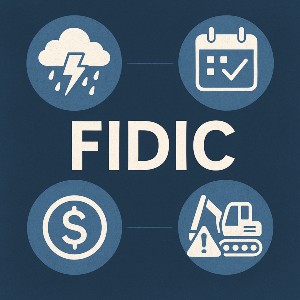Emergency arbitration has become a vital tool for commercial parties needing swift interim relief before a full arbitral tribunal is constituted. Yet one aspect often overlooked with regard to emergency arbitration is cost. Parties tend to focus on urgency and strategy, overlooking the financial implications of launching emergency proceedings. Understanding emergency arbitration costs is not […]
News
Costs of Construction Arbitration
Construction projects are inherently complex. They often bring together multiple parties, detailed contractual frameworks, and technically challenging issues that can lead to high-value disputes.[1] In the construction industry, arbitration is frequently chosen for its neutrality, flexibility, and enforceability across jurisdictions. However, the costs of construction arbitration can be substantial and at times unpredictable, occasionally rivaling […]
Ad Hoc Arbitration
In international commercial disputes, ad hoc arbitration offers a flexible alternative to institutional proceedings. It is a process conducted without the administration of a permanent arbitral institution,[1] giving parties greater control over how their dispute will be managed. This model is often chosen by users who prioritise autonomy, procedural efficiency, and the ability to tailor […]
International Arbitration Costs
International arbitration can be an efficient and neutral means of resolving cross-border disputes, but its costs are a constant concern for parties. Even when the amount in dispute is high, parties understandably wish to avoid unnecessary expenses and to have a clear picture, from the outset, of what an arbitration is likely to cost. While […]
Aceris Law’s Team Named Among Top Arbitration Thought Leaders
Aceris Law is honored to announce that its team has been recognized as Thought Leaders in the Autumn 2025 Mondaq Thought Leadership Awards. The awards celebrate the most widely read and influential legal articles published across multiple jurisdictions and practice areas. This recognition reflects Aceris Law’s long-standing commitment to sharing insightful, practical knowledge about international […]
Lukoil Arbitration Cases
Arbitration plays a vital role in resolving disputes within the global energy industry, where high financial stakes and geopolitical complexities often collide. This note examines several major Lukoil arbitration cases, showcasing how international arbitration mechanisms handle cross-border energy disputes involving sanctions and enforcement challenges. As one of Russia’s leading multinational energy corporations, Lukoil operates across […]
NEC Contracts: Dispute Resolution Under NEC3 and NEC4
The NEC family of contracts, short for New Engineering Contract, is a suite of standard forms of contract originally developed under the auspices of the Institution of Civil Engineers (“ICE”). NEC is designed for construction, engineering, and infrastructure projects and is used widely in the UK public sector. Its use has also expanded globally, particularly […]
Aceris Law Obtains Positive Outcome in Dispute with Kazakh Entity
Full arbitration proceedings are not always necessary to resolve a dispute. In a recent matter handled by Aceris Law, our team effectively achieved a favorable resolution in a complex international dispute without initiating arbitration. The dispute concerned multiple contracts for the sale of industrial machinery, where one party consistently failed to meet its payment obligations […]
Understanding Risk Allocation in FIDIC Construction Contracts
Construction contracts do more than set out scope, price, and timelines – they also determine how risks are allocated between the parties.[1] Risk allocation is often described as the “soul” of a construction contract because it defines who bears responsibility when projects face design errors, cost overruns, delays, or unforeseen site conditions.[2] The Fédération Internationale […]








